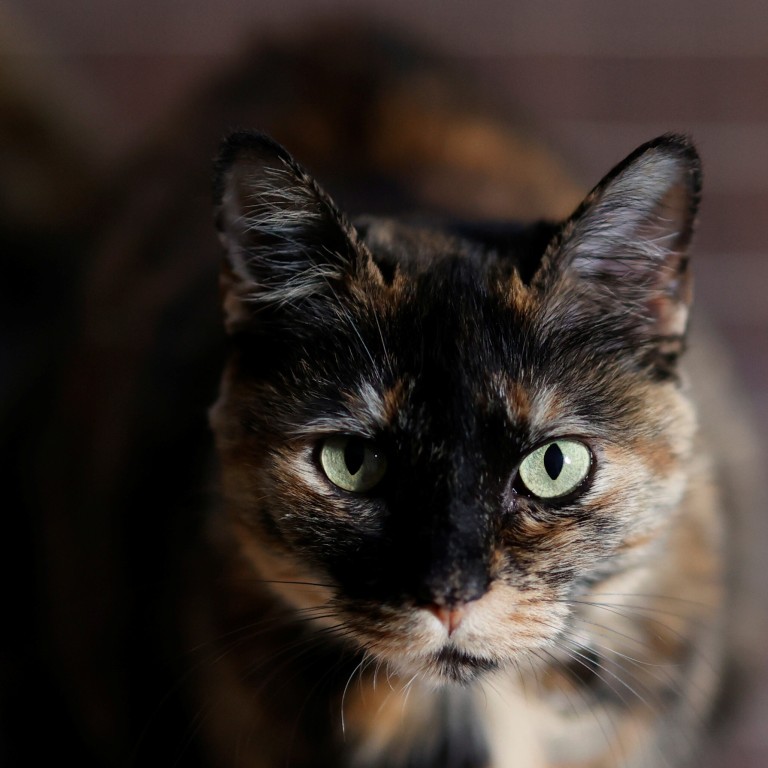
Cat drug shows promise against coronavirus in lab tests, Chinese researchers say
- Feline medication binds to enzyme, halting replication of the Covid-19 pathogen, according to scientists
- American developer has applied to US regulator for clinical trials in humans
The findings come just weeks after the American developer of the feline medicine announced that it had applied to the US Food and Drug Administration for emergency approval to start clinical trials of the drug on humans.
In a non-peer-review paper posted on the preprint server bioRxiv on Sunday, researchers led by Professor Zhang Shuyang at the Chinese Academy of Medical Sciences said that computer modelling and laboratory experiments suggested that the medication called GC376 was “a relatively effective and safe drug candidate”.
The drug binds to an important enzyme of Sars-CoV-2, the coronavirus that causes the disease Covid-19, according to the study. The enzyme, called Mpro, breaks down big proteins into amino acids and the virus uses these amino acids as building blocks. Without Mpro, the virus cannot make copies of itself.

01:21
Tiger at New York’s Bronx Zoo tests positive for coronavirus
The Chinese scientists found that the drug could easily enter cells infected by the novel coronavirus and inhibit viral production. It required only a dose of very low concentration to achieve maximum effect, “showing an excellent safety profile”, the researchers said.
GC376 was developed by Anivive Lifesciences, a biotech company based in Long Beach, California, and has been used to treat kittens suffering the feline infectious peritonitis, a fetal disease that is caused by a coronavirus that does not infect humans.
Anivive filed a pre-investigational new drug request with the FDA for GC376 based on its own research over the past few months, the company said late last month.
Anivive said it would receive guidance from the FDA to set up clinical study protocols. It was unclear when the drugs would be tested on Covid-19 patients.
“We look forward to our discussions with the FDA and advancing toward a clinical trial,” company founder Dylan Balsz was quoted as saying.
The Chinese scientists warned in a paper published in Science magazine that cats could become a hidden reservoir or intermediate host that passed the virus to humans.
Guo Xiaofeng, professor of veterinary with the South China Agricultural University in Guangzhou, said some diseases infected both humans and animals, and their medical treatments could be similar. The rabies virus, for instance, could jump from dogs to humans through a bite, and the rabies vaccines for dogs and humans were technically identical.
“The difference, if any, may be quality,” Guo said. “If a drug works on cats, there is a reasonable hope it will work on humans as well. But there is no guarantee.
“Humans are likely more sophisticated than cats.”

